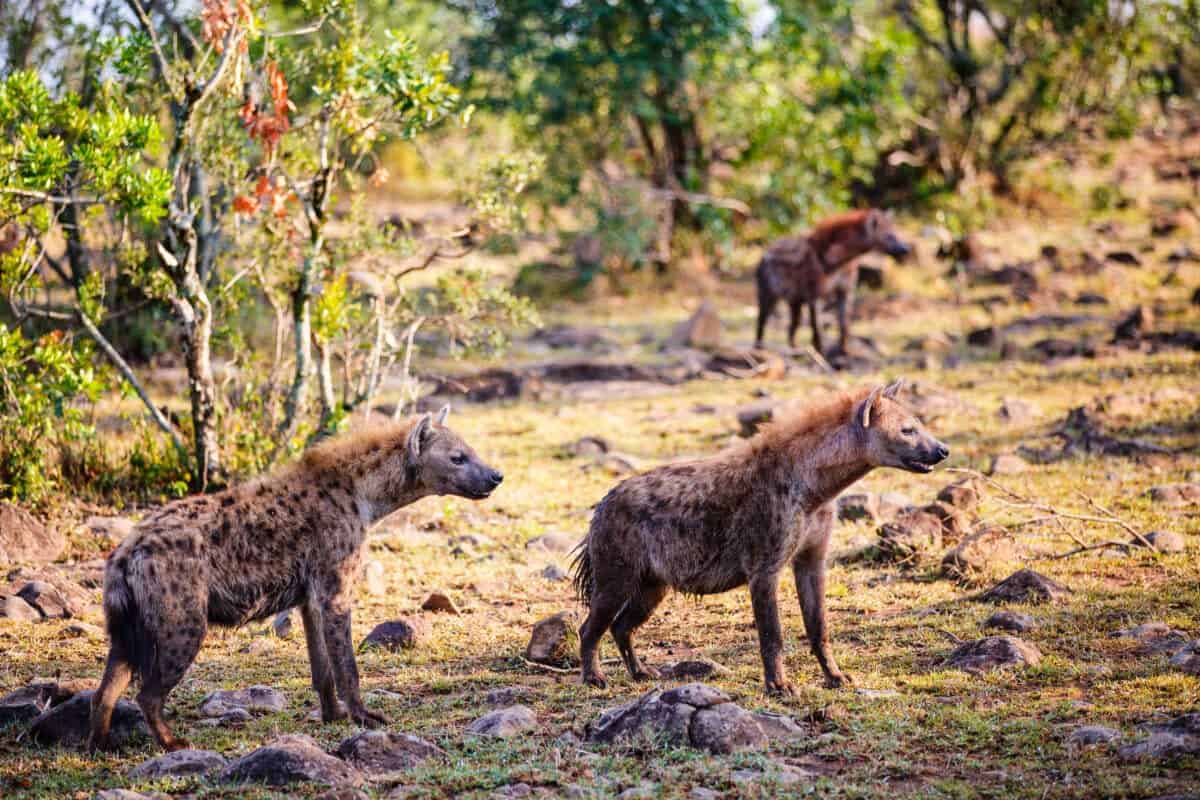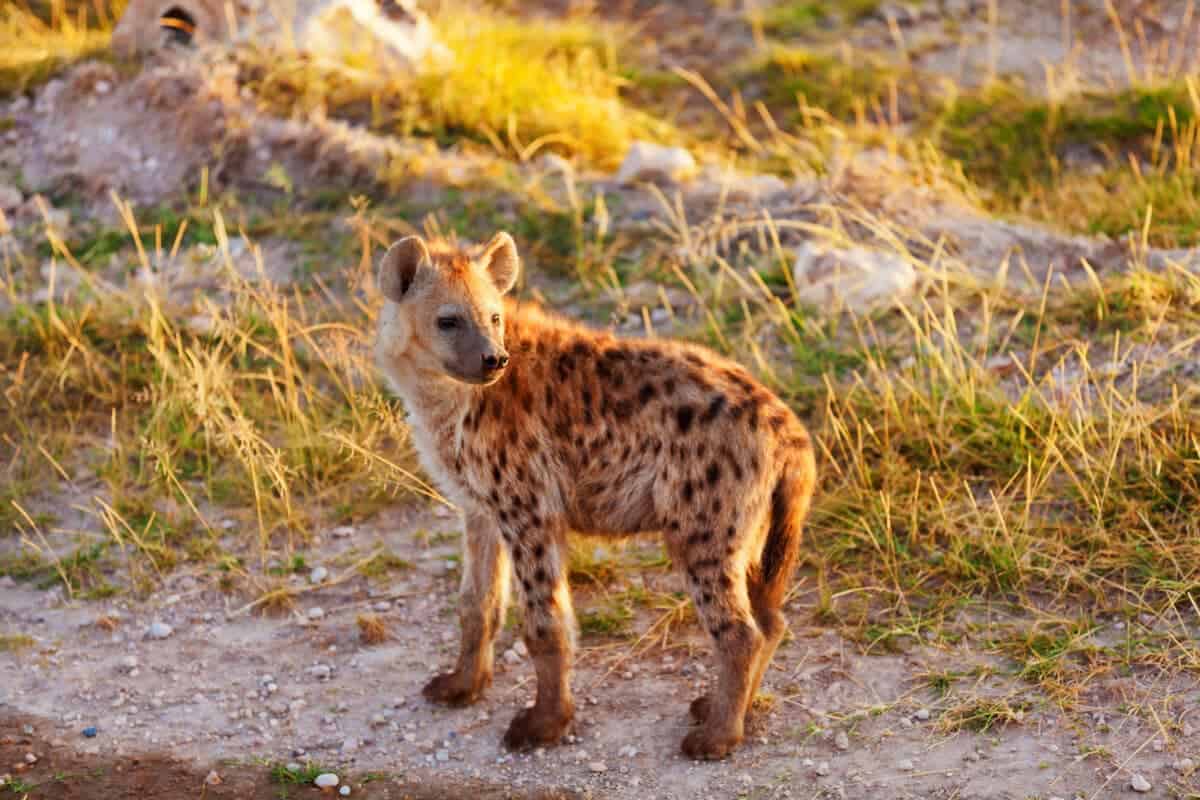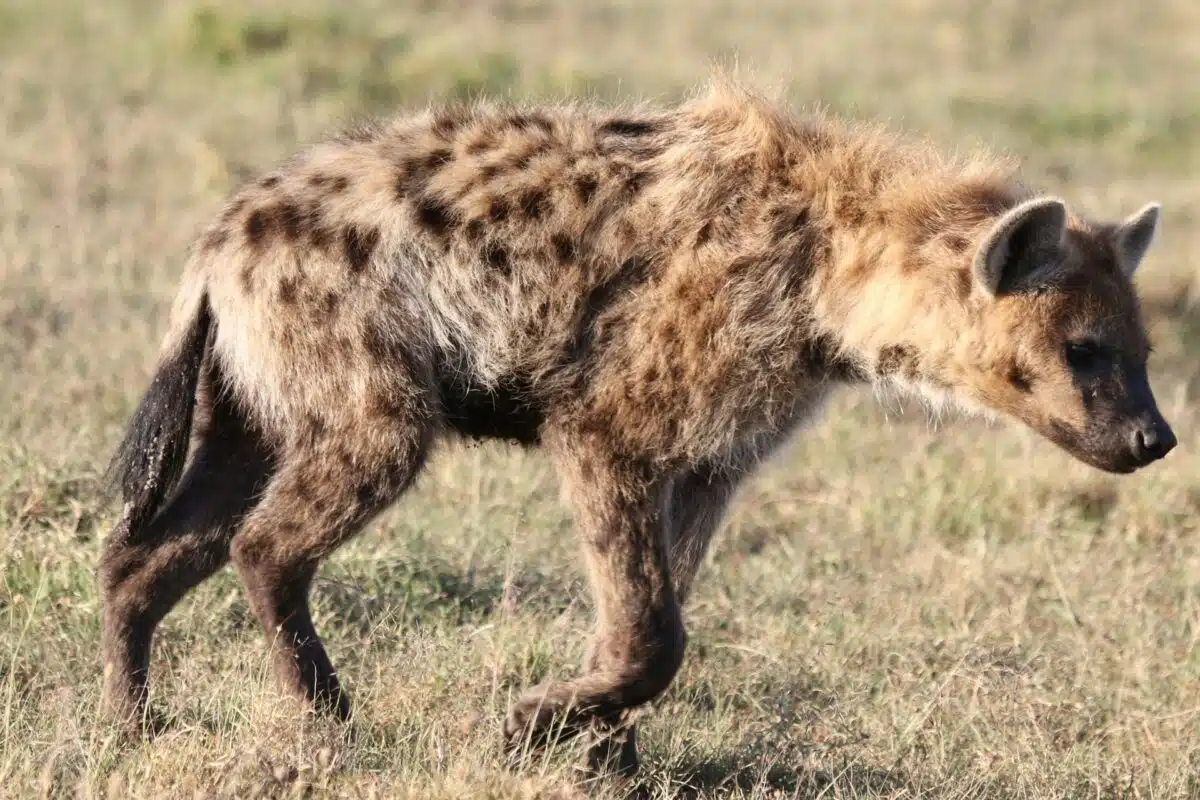Hyenas, with their menacing laughter echoing through the African savanna, have long been regarded as symbols of fear and ferocity. Renowned for their formidable hunting skills, scavenging prowess, and pack mentality, these enigmatic creatures evoke both fascination and trepidation among wildlife enthusiasts and researchers alike. In this exploration, we delve into the question: just how aggressive are hyenas, and what makes them feared amongst wildlife?
The Fear Factor: Why are hyenas feared?

Hyenas’ fearsome reputation stems from their relentless pursuit of prey, their opportunistic scavenging behavior, and their formidable pack dynamics. Possessing powerful jaws and impressive endurance, hyenas are capable predators capable of taking down prey much larger than themselves. Their haunting vocalizations and nocturnal habits add to their mystique, instilling a sense of unease among other animals sharing their habitat. Additionally, their adaptability to various environments and their ability to thrive alongside human settlements further cements their status as apex predators in their ecosystems.
Dietary Preferences

Hyenas are opportunistic omnivores with a diverse diet that includes everything from small insects and carrion to large ungulates and even other predators’ kills. While they are skilled hunters capable of taking down prey such as antelope, wildebeest, and zebra, hyenas are equally adept scavengers, often feasting on the remains of kills made by lions or other predators. Their powerful jaws and bone-crushing teeth allow them to consume virtually every part of their prey, including bones, hooves, and hides, making them invaluable as nature’s clean-up crew.
Roaming Territories

Hyenas are found across sub-Saharan Africa, with various species inhabiting a range of habitats from dense forests to open grasslands and arid deserts. Spotted hyenas (Crocuta crocuta), the most common and well-known species, are typically found in savannas and scrublands, where they hunt and scavenge in large territories controlled by matriarchal clans. Striped hyenas (Hyaena hyaena), on the other hand, inhabit a broader range of habitats, including deserts, mountains, and urban areas, where they scavenge for food and den in secluded burrows.
Do hyenas work in packs?

Hyenas are highly social animals that live in complex hierarchical societies known as clans, dominated by a dominant female known as the matriarch. Within these clans, individual hyenas form close bonds with one another, cooperating during hunts, defending territory, and caring for young. Pack hunting is a common behavior among spotted hyenas, where individuals work together to isolate, exhaust, and ultimately bring down their prey. This coordinated effort allows hyenas to tackle prey much larger than themselves and ensures a steady food supply for the entire clan.
So, How Aggressive are hyenas?

Hyenas are undoubtedly aggressive predators, but their aggression is primarily directed towards securing food and defending territory rather than unprovoked attacks on other species. They are highly territorial animals, marking their boundaries with scent markings and vocalizations to deter intruders. While conflicts between hyenas and other predators, such as lions or wild dogs, are not uncommon, they typically occur over access to resources rather than purely out of aggression.
However, hyenas have been known to exhibit aggressive behavior towards humans, particularly in areas where their natural prey populations have been depleted, leading them to scavenge in close proximity to human settlements.
In conclusion, hyenas’ aggression is a fundamental aspect of their predatory lifestyle, essential for securing food, defending territory, and maintaining social cohesion within their clans. While their reputation as fierce predators may evoke fear and awe, understanding the complexities of hyena behavior is crucial for appreciating their role in maintaining the delicate balance of African ecosystems.
If you enjoyed this piece, you may enjoy these:
- Leopard Falls Directly On Top of A Hyena
- Leopard and Hyena in Tug of War: Watch to See Who Wins
- Discover a Hostile Interaction Between Hyena and Lions End In Friendly Drink
Join our Forum for free today!

- Second American Killed by Elephant in Zambia This Year - July 22, 2024
- Elderly Man Kills Grizzly Bear in Montana - July 22, 2024
- Missing Cat Found Weeks Later, 40 Miles Away - July 21, 2024

